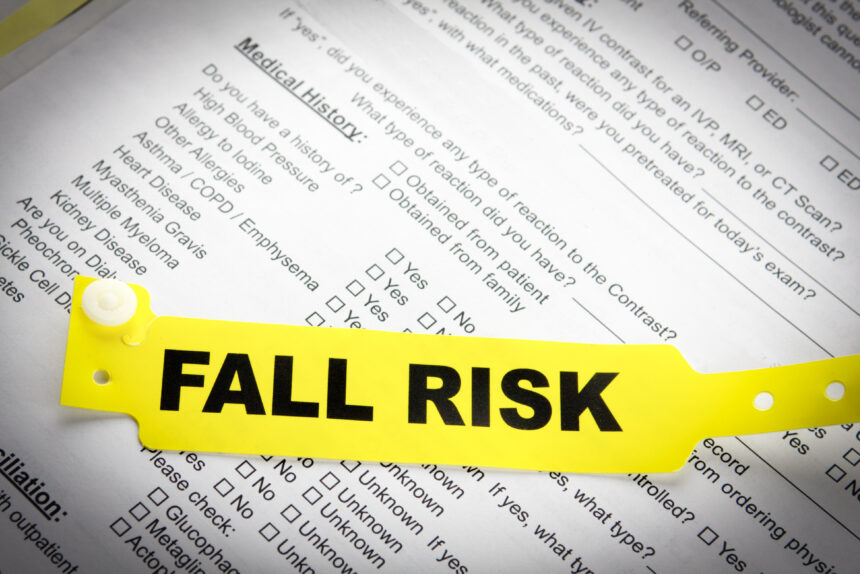Not known Details About Dementia Fall Risk
Not known Details About Dementia Fall Risk
Blog Article
The smart Trick of Dementia Fall Risk That Nobody is Talking About
Table of ContentsNot known Factual Statements About Dementia Fall Risk Dementia Fall Risk Things To Know Before You BuyDementia Fall Risk - The FactsAll about Dementia Fall RiskThe Main Principles Of Dementia Fall Risk
Assessing autumn danger assists the whole healthcare group establish a safer atmosphere for every person. Make sure that there is a marked area in your clinical charting system where team can document/reference ratings and record relevant notes associated with fall avoidance. The Johns Hopkins Autumn Danger Assessment Tool is among several devices your team can use to aid protect against damaging clinical occasions.Client drops in health centers are common and incapacitating adverse occasions that continue in spite of decades of effort to minimize them. Improving interaction throughout the evaluating nurse, care team, patient, and individual's most included loved ones might strengthen autumn avoidance initiatives. A team at Brigham and Women's Medical facility in Boston, Massachusetts, sought to develop a standard autumn prevention program that centered around boosted communication and person and family interaction.

The technology team stressed that effective execution depends upon client and staff buy-in, integration of the program into existing process, and fidelity to program procedures. The group noted that they are grappling with how to make certain connection in program implementation during periods of dilemma. During the COVID-19 pandemic, for instance, a rise in inpatient drops was connected with limitations in individual engagement along with restrictions on visitation.
Dementia Fall Risk - The Facts
These cases are usually taken into consideration avoidable. To carry out the intervention, companies need the following: Access to Loss suggestions sources Fall suggestions training and re-training for nursing and non-nursing staff, including brand-new registered nurses Nursing operations that allow for patient and household engagement to carry out the drops assessment, make sure usage of the avoidance plan, and perform patient-level audits.
The results can be very detrimental, commonly speeding up person decline and triggering longer healthcare facility stays. One research estimated remains raised an extra 12 in-patient days after an individual loss. The Fall TIPS Program is based on appealing patients and their family/loved ones across three major procedures: assessment, customized preventative treatments, and auditing to make sure that patients are engaged in the three-step autumn avoidance procedure.
The individual evaluation is based on the Morse Loss Range, which is a verified autumn danger analysis tool for in-patient hospital setups. The range includes the 6 most typical factors clients in health centers drop: the patient loss history, risky conditions (consisting of polypharmacy), usage of IVs and other outside gadgets, psychological condition, stride, and flexibility.
Each danger aspect relate to several actionable evidence-based interventions. The registered nurse produces a strategy that includes the treatments and is noticeable to the care team, client, and family members on a laminated poster or published visual help. Registered nurses develop the plan while meeting with the person and the client's family members.
The Single Strategy To Use For Dementia Fall Risk
The poster acts as a communication device with other participants of the client's treatment team. Dementia Fall Risk. The audit component of the program includes analyzing the individual's understanding of their risk variables and prevention strategy at the unit and medical facility degrees. Registered nurse champs conduct at the very least 5 specific interviews a month with patients and their family members to look for understanding of the fall prevention plan

A projected 30% of these drops cause injuries, which can vary in severity. Unlike other damaging occasions that need a standard professional feedback, fall avoidance depends highly on the demands of the individual. Including the input of individuals that know the individual ideal enables higher customization. This strategy has verified to be more effective than autumn avoidance programs that are based largely on the manufacturing of a risk rating and/or are not customizable.
How Dementia Fall Risk can Save You Time, Stress, and Money.

Based upon bookkeeping results, one site had 86% compliance and 2 sites had over 95% conformity. A cost-benefit evaluation of the Loss TIPS program in 8 healthcare facilities estimated that the program cost $0.88 per person to carry out and resulted in financial savings of $8,500 per 1000 patient-days in direct prices associated to the avoidance of 567 tips over three years and eight months.
According to the technology team, companies interested in carrying out the program needs to try this site carry out a preparedness evaluation and drops prevention voids analysis. 8 In addition, organizations must make certain the required framework and workflows for implementation and establish an implementation strategy. If one exists, the company's Autumn Avoidance Task Pressure ought to be associated anonymous with planning.
The Dementia Fall Risk PDFs
To begin, organizations ought to make certain conclusion of training modules by registered nurses and nursing aides - Dementia Fall Risk. Health center personnel ought to assess, based on the demands of a health center, whether to make use of a digital wellness document hard copy or paper variation of the loss avoidance strategy. Applying groups should hire and educate nurse champs and develop procedures for bookkeeping and reporting on autumn data
Personnel need to be involved in the procedure of redesigning the workflow to involve people and family members in the evaluation and prevention strategy read the full info here process. Solution ought to be in place so that systems can understand why a fall took place and remediate the reason. A lot more especially, registered nurses must have networks to give recurring responses to both personnel and system leadership so they can readjust and boost autumn prevention workflows and communicate systemic problems.
Report this page